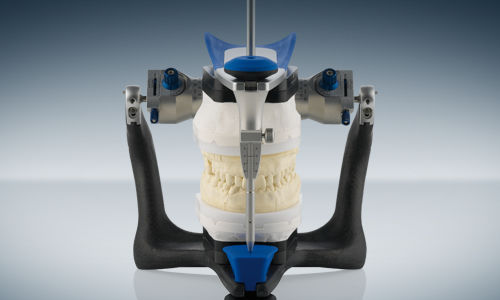If any of your teeth are missing or damaged, or you have other problems with your mouth or jaw, your dentist may recommend prosthodontics.
This can involve replacing teeth with dental prosthetics such as implants or rebuilding other facial structures. Prosthodontics aims to restore your smile as well as preserve your oral health for the long term.
Repairing worn, damaged or decayed teeth can be achieved by using crowns, fillings and other restorative treatment. Replacing missing teeth can involve implants, bridges and dentures.
What is prosthodontics?
Prosthodontics is a specialist field of dentistry that involves the use of fixed and removable dental restorations to restore dental appearance and function.
Dentists are able to diagnose, plan and manage treatments using dental prostheses to correct a wide range of oral health problems. They also have a strong focus on reducing the risk of these problems happening again in the future.
Prosthodontic treatments may be chosen for functional or cosmetic reasons. They are designed to restore the natural appearance and function of the teeth, gums and other areas of the face. They can also help with jaw problems such as temporomandibular joint disorders (TMJD).
How is a prosthodontist different from other dentists?
General dentists can perform prosthodontic treatments but, to register as a specialist in the field, a dentist must complete three additional years of education.
This in-depth training equips prosthodontists with the knowledge and skills needed to diagnose and treat a wide range of health issues. They're also adept at leading teams and working with the latest dental technologies to develop innovative treatments for complex problems.

Why would I need to see a prosthodontist?
If your case is complex, or you have additional problems with your jaw or mouth, your dentist may recommend a referral to a prosthodontist.
Your prosthodontist will perform a full examination of your mouth, which may involve the use of x-rays and other diagnostic imaging systems, such as CT or MRI scans. This allows them to see more of your mouth and to plan the most effective treatment.
Prosthodontic treatment involves more than just your mouth and teeth. It involves your general health and the individual risk factors that you have. As well as fitting dental prosthetics to restore the look and function of your mouth, your prosthodontist will design a comprehensive treatment plan that stops diseases and infections from spreading and helps you maintain good oral health for the long term.
What are the different types of dental prosthetics?
Prosthodontists are experienced in the use of a wide range of dental prostheses and will discuss all the suitable options available during your consultation. These can include:
Implants
Dental implants are a fixed replacement for missing teeth. Made from strong titanium, implants are surgically positioned in the jaw where they act as tooth roots. Once they've fused with the jaw bone, implants are covered by a natural-looking crown.
If you need to replace a whole arch of teeth, your prosthodontist may recommend implants to help retain your dentures. This method uses a variable number of implants to replace the upper or lower arch of teeth, often without the need for bone grafting.
Crowns and bridges
Crowns and bridges are prosthetic teeth that can fill gaps in the mouth or restore the natural appearance, strength and function of your smile. They are cemented onto the teeth and are not removable.
Crowns can be made from metal, porcelain or ceramic and are designed to look like your natural teeth. Bridges can be thought of as a type of fixed denture that fill gaps in your teeth, supported by crowns on either side.
Dentures
Dentures can be used to replace a whole set of teeth (full dentures) or individual teeth (partial dentures). Your prosthodontist will design your dentures to fit your mouth and choose a shade that looks like your natural teeth.
They may also discuss overdentures with you, which are anchored more firmly in the mouth using dental implants. This helps to reduce the bone loss that can occur with traditional dentures.
Mouthguards
Wearing a mouthguard at night can ease the strain on your teeth and jaws and help you to breathe more easily during sleep.
Your prosthodontist can provide a custom-fitted mouthguard if you grind or clench your teeth (bruxism), if your throat becomes blocked during sleep (sleep apnoea), or if you have a temporomandibular joint disorder (TMJD).
